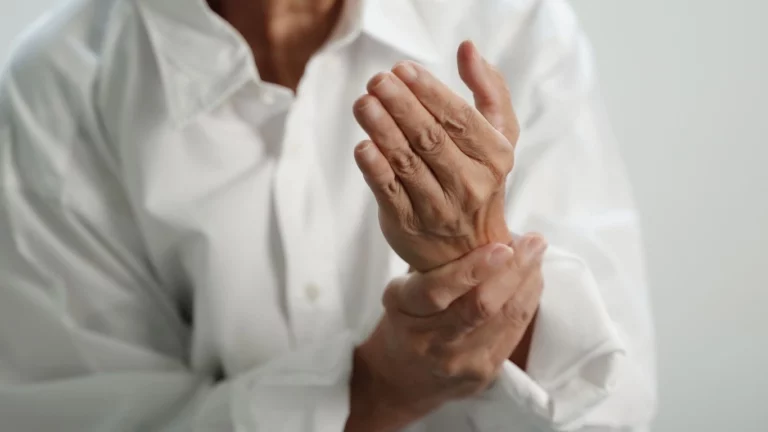How Sleep Hygiene Can Help with GERD 🛏️💤
Hey there!
If you’ve been dealing with GERD (that pesky acid reflux thing), you know how annoying it can be—especially when it messes with your sleep. But here’s some good news: your sleep habits might be able to help you out! Yeah, improving your sleep hygiene can actually make a big difference when it comes to managing GERD symptoms.
In this post, we’re going to break down how sleep hygiene can help, what steps you can take, and some real-life examples from people who’ve tried it. So, grab a cup of tea (but not too much caffeine) and let’s dive in.
What Is GERD and How Does Sleep Affect It?
First things first, GERD stands for Gastroesophageal Reflux Disease—basically, when stomach acid moves back up into your esophagus and causes all sorts of uncomfortable symptoms like heartburn and that gross feeling of acid coming up into your throat.
Now, when it comes to sleep, GERD and poor sleep don’t mix well. If you’re lying down right after eating or sleeping on your back, you’re basically giving acid the perfect opportunity to travel upward and cause problems. But don’t worry, we’ve got ways to tackle this!

How Sleep Hygiene Helps Your GERD 🛌
1. Elevate Your Head
A simple trick? Sleeping with your head raised. Yup, just a slight incline helps keep that stomach acid from making its way up to your throat while you sleep. You don’t need to go crazy with the elevation; even a slight raise can work wonders.
I know, at first, it might feel weird (I was like, “What am I, a fancy hotel bed?”), but trust me, it’s worth it. You could try a wedge pillow or just stuff a couple of regular pillows under your head to get started.

2. Stick to a Sleep Schedule
You know how good it feels when you go to bed and wake up at the same time every day? Your body loves routine, and GERD is no exception. Going to sleep at the same time every night helps your digestive system stay in rhythm, which means less reflux and more peaceful sleep. 🕙
3. Avoid Eating Late
This one’s a biggie. Eating heavy meals right before bed is like inviting GERD to throw a party in your stomach. If you can, try to eat at least 2–3 hours before lying down. It gives your stomach time to digest and lowers the chances of acid reflux while you sleep.
I know, sometimes life gets busy, and we end up eating late. But a lighter meal (like a salad or small snack) can be easier on your stomach if you’re craving something near bedtime.

4. Relax Before Bed
Stress is a huge factor in GERD, and let’s be real—most of us are stressed out, right? If you want better sleep, try winding down with something chill before bed. Maybe a warm bath, reading a book, or some light meditation. Nothing too intense—just a way to ease your mind and body into a restful state. 🧘♀️
5. Create a Sleep-Friendly Environment
Make your bedroom a sleep sanctuary! Keep it dark, cool, and quiet. If you’re in a noisy area, maybe use earplugs or a white noise machine to help block out distractions. Also, keeping your room clean and comfy makes it way easier to unwind.
Troubleshooting Common Issues
Alright, let’s keep it real—sometimes, these tips don’t always work right away. Here are a few common hurdles you might face and how to get past them:
1. Struggling to Sleep with Your Head Elevated?
At first, sleeping with your head raised can feel like you’re on a weird incline (I know, it’s not comfy at first). But try easing into it! You can use a wedge pillow or raise the head of your bed slightly. Start with a little incline and gradually increase it if it feels okay. You’ll get used to it!
2. Eating Too Late?
I get it—life happens, and sometimes you need that late-night snack. If you can, just make it something light and easy on the stomach. Avoid spicy, fatty, or greasy stuff, since they’re more likely to trigger reflux.
3. Stress Keeping You Up?
Yeah, stress is the worst, especially when you’re trying to sleep. Try journaling for 5 minutes before bed or doing some deep breathing exercises. It sounds simple, but it helps. I’ve had days where I couldn’t sleep, and even just a little bit of deep breathing or stretching made a huge difference.
Real-Life Success Stories
Sarah’s Success 🦋
Sarah’s story is pretty awesome. She’s a 32-year-old who was always battling nighttime heartburn. After she started elevating her head while sleeping and sticking to a regular sleep routine, she noticed a huge improvement. No more waking up with that burning sensation in the middle of the night! Plus, she started meditating before bed to de-stress. It’s been a game-changer for her.
Tom’s Journey to Better Sleep 😴
Tom, 45, used to eat dinner super late (we all do it, right?). It wasn’t until he started eating earlier and avoiding heavy meals before bed that his reflux calmed down. He also started using a wedge pillow, which helped with the nighttime acid. Now, he wakes up feeling way better in the morning, without that gross acid reflux ruining his sleep.
Key Takeaways
- Sleep hygiene can seriously help with GERD by preventing acid reflux during the night.
- Elevating your head, keeping a steady sleep routine, and not eating too close to bedtime are some of the best ways to improve your sleep and manage GERD.
- Creating a relaxing sleep environment and de-stressing before bed also helps!
FAQs
Q: How long before I see results with better sleep hygiene?
It varies from person to person, but many people notice improvements within a few weeks if they stick to a solid routine.
Q: Can sleep hygiene cure GERD?
Unfortunately, no. But better sleep habits can make your GERD symptoms more manageable. It’s part of the puzzle, but you might need other treatments too.
Q: What if I can’t stop eating late at night?
Try to keep it light and avoid anything spicy or greasy. A small snack is okay, but just be mindful of what you eat.
Disclaimer
This post is all about tips and suggestions for improving your sleep hygiene and managing GERD. It’s not medical advice, so if you’re having a lot of trouble with GERD, make sure to talk to a healthcare professional.
Call to Action
Ready to improve your sleep and say goodbye to that annoying heartburn? Try incorporating some of these tips into your routine and see how it goes. And if GERD is still giving you trouble, don’t hesitate to reach out to a doctor. Sleep better, feel better! 🌙

Camellia Wulansari is a dedicated health writer specializing in digestive disorders, contributing valuable insights and information to the health and wellness community. With a passion for promoting well-being through knowledge, Camellia serves as a reliable source of expert content on healthusias.com.






